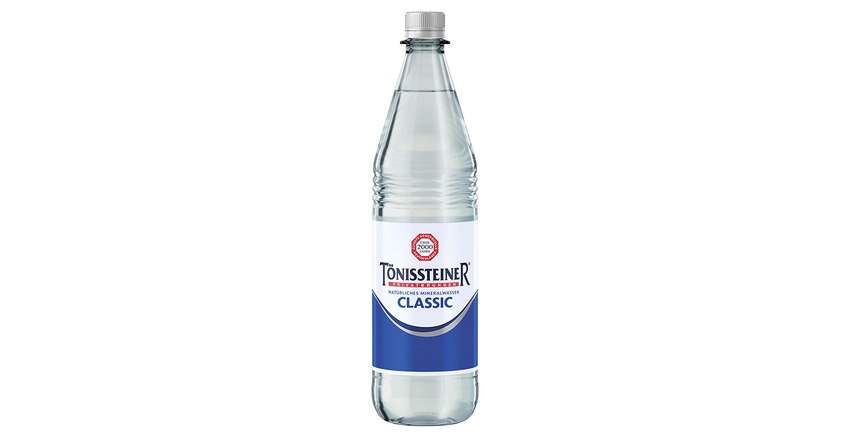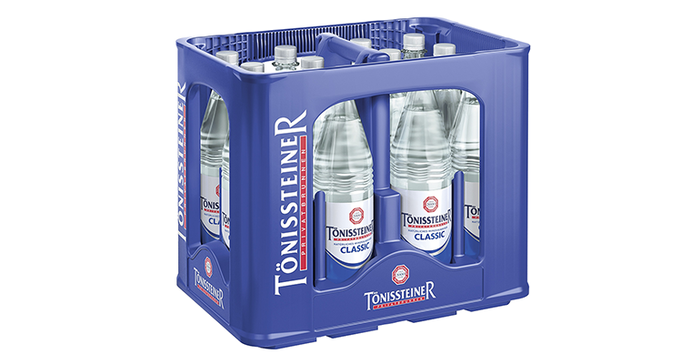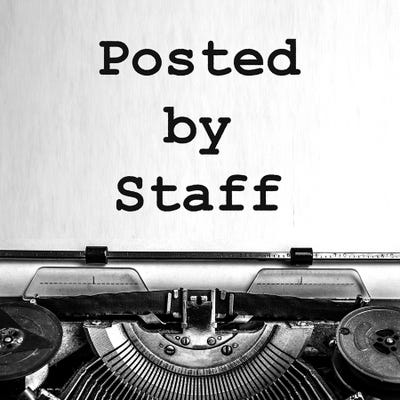German Water Brand Debuts Reusable rPET Bottle
Returnable 1-liter 100% rPET bottle for mineral water reduces the brand’s carbon footprint while its low weight versus glass offers logistical advantages.
October 12, 2023

In 2022, European plastics packaging pioneer Alpla partnered with Austrian mineral water brand Vöslauer to debut a returnable PET bottle that reduced carbon emissions 30% and reduced by 90% the weight versus a glass bottle.
Alpla has taken the next big sustainable step in that approach with German mineral water brand Privatbrunnen Tönissteiner Sprudel. A year in development, this latest generation bottle is made of 100% recycled PET (rPET) and is returnable in a closed-loop system.
The 1-liter Tönissteiner Sprudel bottle introduced at retail also reduces bottle weight versus glass and the brand’s carbon footprint.
Produced and provided by ALPLArecycling, the bottle can be fully recycled at the end of its lifecycle.
he packaging of the future is sustainable, light, and safe,” says Georg Pescher managing director of Alpla Germany. “Such packaging is delivered within a circular economy based on the bottle-to-bottle principle, weight optimization and systematic design for recycling. Working with Tönissteiner, we have brought all these together to create a new reusable solution made entirely of rPET.”
“Tönissteiner stands for the sustainable use of resources,” emphasizes Hermann-Josef Hoppe, Tönissteiner managing director . “In Alpla, we have found an innovative partner for the introduction of our first own reusable rPET bottle. The climate-friendly bottle has been perfectly tailored to our sorting, bottling and transport processes.”

The perfect-fit design of the reusable rPET bottle means it can be used with Tönissteiner’s existing twelve-bottle crates. Up to 160 crates containing 1,920 more bottles can be transported per lorry load. The optimized return of empty Tönissteiner rPET and glass containers on a pallet of standardized crates also speeds up the cycle and reduces the bottle sorting work of wholesalers and retailers.
When the reusable bottle reaches the end of its lifespan as determined by the number of cycles it goes through, it can now be turned into rPET at the ALPLArecycling plants and recycled into new bottles. Laser markings indicate the number of cycles a bottle has been through and complement the quality controls at the refilling stage.
Tönissteiner and Alpla have established an optimum bottle-to-bottle closed loop system that ensures their own pool of high-quality reusable rPET bottles.
About the Author(s)
You May Also Like




